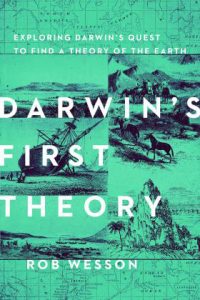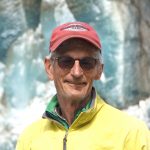Alum Books Podcast: Darwin’s First Theory
-
-
slice.mit.edu
Filed Under
Recommended
 A year before he founded MIT, William Barton Rogers earned a reputation as a great public speaker in in Boston by debating Harvard naturalist Louis Agassiz about Darwin’s theory of evolution. A geologist, Rogers saw a great deal of plausibility in Darwin’s theories, and history has rewarded him for his insight.
A year before he founded MIT, William Barton Rogers earned a reputation as a great public speaker in in Boston by debating Harvard naturalist Louis Agassiz about Darwin’s theory of evolution. A geologist, Rogers saw a great deal of plausibility in Darwin’s theories, and history has rewarded him for his insight.Like Rogers, Rob Wesson ’66 has found great rewards in applying his own love of geology to Darwin’s work. His new book, Darwin’s First Theory, details his journeys in the wake of the Beagle, the ship on which Darwin made some of his most advanced and profoundly disruptive discoveries.
(Read the episode transcript.)
Most of these insights into biology, Wesson argues, emerged from Darwin’s studies of geology. "Until middle age I knew almost nothing of Darwin," Wesson writes. "I didn't know that Darwin had joined the expedition to serve as its geologist."
Without spoiling his title, Wesson points out that Darwin’s first theory arose out of his experience with and understanding of earthquakes. On Isla Santa Maria in Chile, Darwin witnessed the subduction and uplift that can occur as the earth shifts.
To follow in Darwin’s footsteps, Wesson found a map in the basement of the library of Congress that detailed Darwin’s 1835 soundings in the bay on Isla Santa Maria, then traveled there himself to measure the same depths. On average, the water was a meter and a half deeper than Darwin measured. Six weeks later, after a magnitude-8 earthquake, the depths again matched Darwin’s measurements.
“That to me was just most amazing, from a scientific point of view,” says Wesson.
Wesson does not avoid the topic of evolution or the many controversies that continue to stir around Darwinism.

“It’s interesting to try and understand why people can be totally comfortable using an iPhone based on physics and on quantum mechanics,” says Wesson, “and go to a radiologist and use physics based on understanding radioactive decay. But when it comes to thinking about the age of the earth they reject this same science. Honestly that’s a little troubling to me – this disconnect between their uses of science and their acceptance of its consequences.”
Listen to the full interview with Wesson above then visit the Slice of MIT Podcast page on SoundCloud for the full archive of podcast episodes from the MIT Alumni Association.







